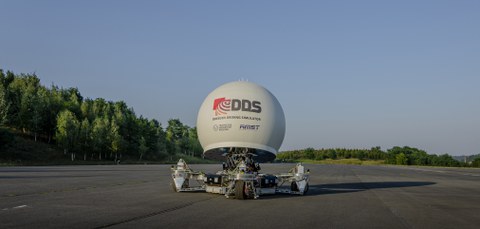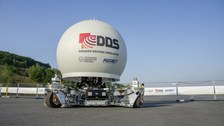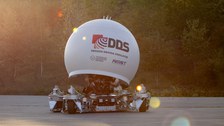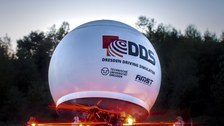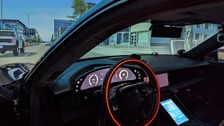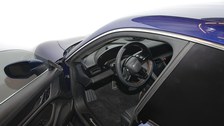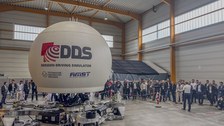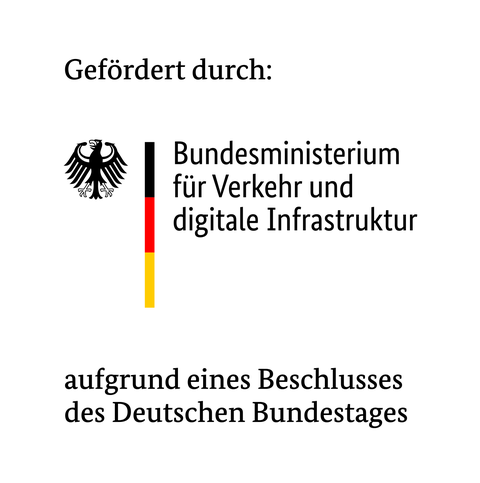Dresden Driving Simulator (DDS)
Table of contents
Functional description
As automation progresses in the automotive industry, the role of the driver is changing permanently. It must be ensured that man and machine work together as efficiently, cooperatively and unambiguously as possible. Considerable efforts are being made globally to ensure safe handover situations between the automated vehicle and the driver and to quantify the safety benefits of assistance systems.
As the human factor is decisive for these investigations and cannot be simulated with sufficient validity, driving simulators are an indispensable and decisive tool. In particular, driving maneuvers in safety-critical driving situations must be simulated in such a way that the driver feels realistically placed in a driving situation. Convincing immersion, i.e. a realistic sensation of acceleration and changes in direction, can only be offered by current driving simulators for a few maneuvers. In order to meet the requirements of future vehicle development, TU Dresden, together with AMST-Systemtechnik GmbH and with financial support from the BMDV, has been implementing the globally unique "Highly immersive driving simulator" project since the beginning of 2019. This driving simulator development enables realistic perception of vehicle behaviour for the first time and is thus revolutionizing the development of automated vehicles.
The concept of a self-driving, tire-based driving simulator theoretically allows an unlimited expansion of the workspace, which in turn results in a significant increase in simulation quality. Following initial application projects from mid-2024, the driving simulator will be located in the Smart Mobility Lab for long-term integration into a modern research infrastructure.
Further information on the highly immersive driving simulator can be found on the Faculty of Transport Sciences' website.
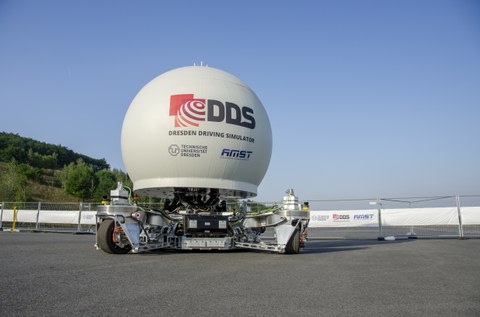
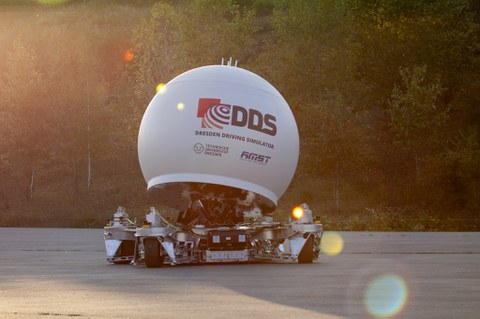
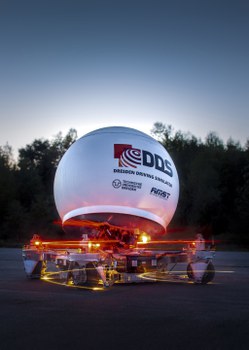
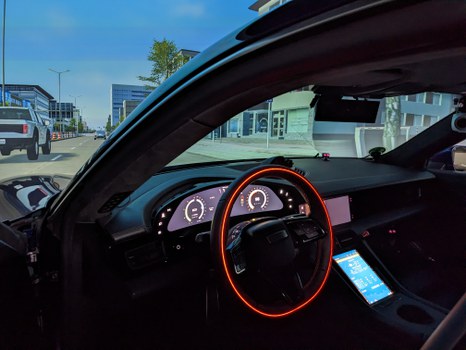
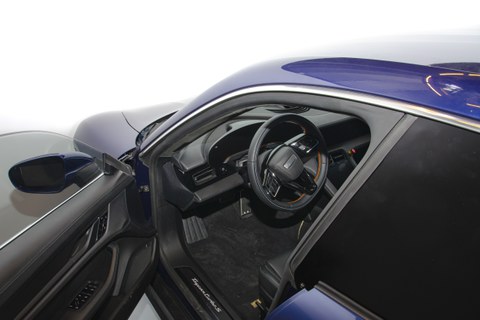
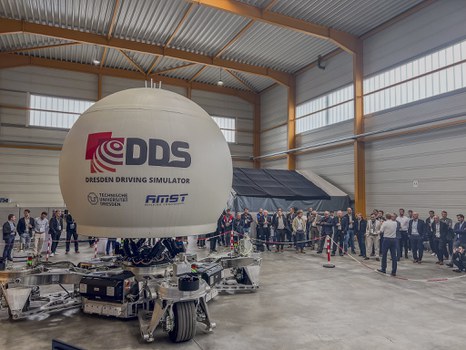
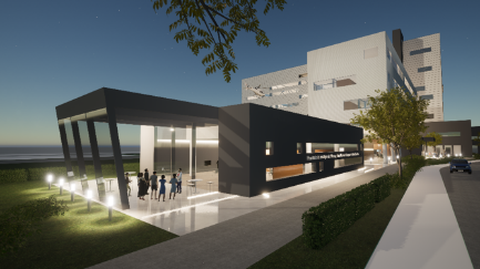
Smart Mobility Lab
Core research areas
- Simulative driving dynamics and driving comfort studies
- Analysis of multimodal chain of effects
- Human-machine interaction (HMI) and human factors
- Investigations into driver assistance systems (ADAS/AD)
- Aspects of traffic psychology
Fields of application
- Objectification of subjective perceptions in vehicle design (comfort, dynamics, safety)
- Development and validation of ADAS ("advanced driver assistance systems") in the context of UX/HMI ("user experience/machine-human interface")
- Studies on human perception
- Traffic psychology studies on driver behavior and validation of driver models
- Traffic space planning
- Accident research and risk profiles for insurance companies
Highlights
- Sustained G-forces
- Dynamic maneuvers
- 10 controllable degrees of freedom
- Immersive visualization
- Modular and interchangeable mockups
- Indoor and outdoor
- Transportable
- Durable construction
Features and performance
- approx. 5200 kg total mass
- ± 0.8 g real acceleration (via motion platform)
- 45 km/h top speed
- Dimensions: 5 x 5 x 5 m
- Low center of gravity: 0.93 m
- Movement area: 100 x 100 m
- 225° x 40° field of vision
- 10 degrees of freedom
- Electric drive system (20 minutes charging time)
- Dynamic driving mode (movement platform): 45 minutes travel time
- Static driving mode (hexapod, yaw drive): continuous operation possible
Downloads and technical data
Technical documentation driving simulator
Contact person
 © TUD
© TUD
Professor
NameProf. Dr.-Ing. Günther Prokop
Send encrypted email via the SecureMail portal (for TUD external users only).
Visiting address:
Jante-Bau, JAN 20 George-Bähr-Straße 1b
01069 Dresden

